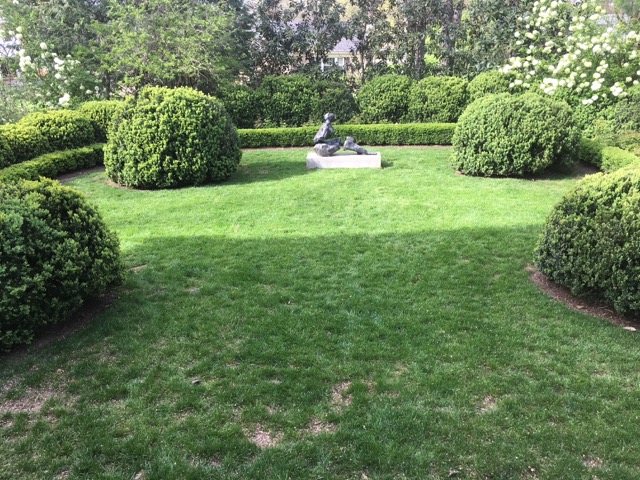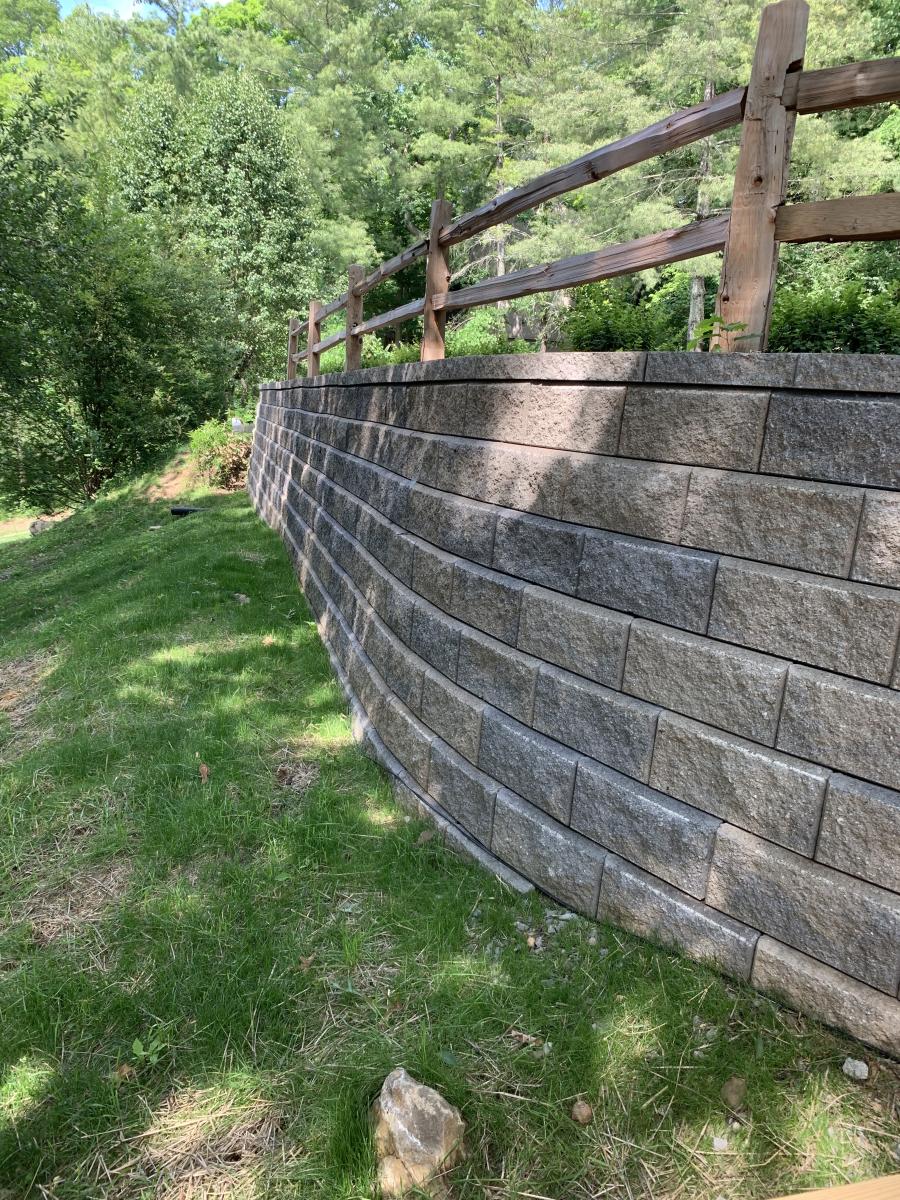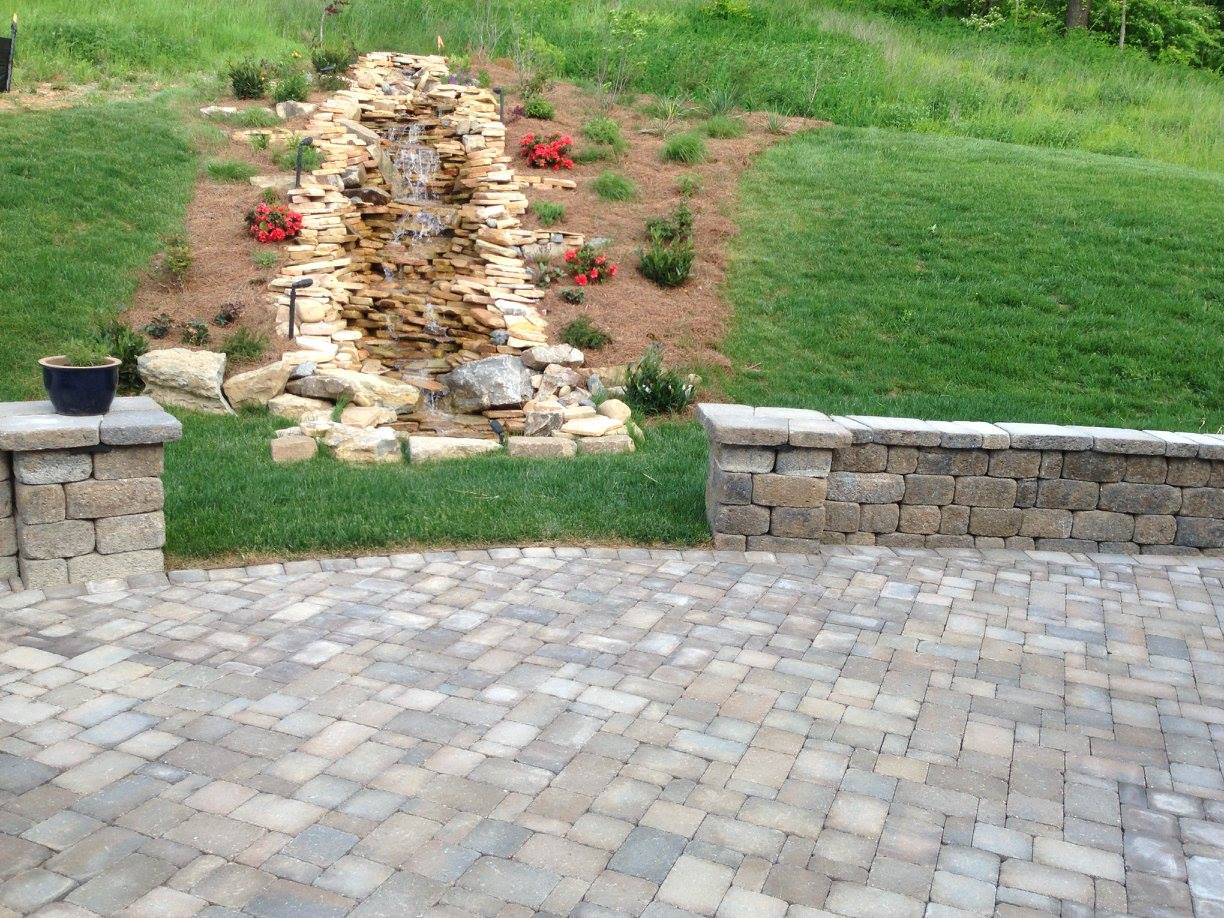Professional shrub transplanting in Nashville preserves valuable established plants while allowing landscape redesigns and property improvements through comprehensive landscape services. Expert plant relocation services ensure successful transplantation of mature shrubs, boxwoods, and specialty plants throughout Middle Tennessee's unique growing conditions.
Why Professional Shrub Transplanting Matters in Nashville
Nashville's established neighborhoods contain mature landscapes with valuable plants that deserve preservation. Professional transplanting saves money, maintains landscape maturity, and preserves plant investments while accommodating property changes and landscape renovations through expert landscape design.
Common Transplanting Scenarios:
- Landscape redesign projects
- Construction and renovation needs
- Plant location optimization
- Overcrowding corrections
- Property development requirements
- Historic landscape preservation with professional installation
Benefits of Professional Service:
- Higher transplant success rates
- Valuable plant preservation
- Cost savings over replacement
- Maintained landscape maturity
- Expertise in Nashville conditions
- Proper timing and techniques
Nashville Climate and Transplanting Success
Middle Tennessee Growing Conditions
Climate Factors:
- Zone 7a hardiness rating
- Hot, humid summers
- Mild winters with occasional freezes
- Spring and fall optimal seasons
- Variable weather patterns
Soil Considerations:
- Clay soil predominance
- Drainage challenges
- pH variations
- Compaction issues
- Root establishment factors
Optimal Transplanting Seasons
Fall (October-November):
- Cooler temperatures reduce stress
- Root establishment before winter
- Reduced watering needs
- Less heat stress
- Better survival rates
Early Spring (March-April):
- Before active growth begins
- Cool weather advantages
- Full growing season ahead
- Moderate temperature conditions
- Good establishment window
Types of Plants Successfully Transplanted in Nashville
Popular Shrub Varieties
Boxwood Species:
- American Boxwood (Buxus sempervirens)
- Japanese Boxwood (Buxus microphylla)
- Korean Boxwood (Buxus sinica)
- Winter Gem Boxwood
- Green Velvet varieties with native plant expertise
Azaleas and Rhododendrons:
- Southern Indica azaleas
- Kurume azaleas
- Encore azaleas
- Native azaleas
- Rhododendron species
Evergreen Shrubs:
- Holly varieties
- Juniper species
- Nandina domestica
- Camellia japonica
- Mountain laurel
Deciduous Shrubs:
- Hydrangea species
- Viburnum varieties
- Spirea species
- Forsythia
- Weigela
Specialty Plants
Ornamental Trees:
- Japanese maples
- Dogwood varieties
- Redbud species
- Small ornamental trees
- Dwarf conifers
Perennial Plants:
- Hosta varieties
- Daylily clumps
- Ornamental grasses with garden design
- Large perennial specimens
- Established groundcovers
Professional Transplanting Process
Phase 1: Assessment and Planning (Week 1)
Plant Evaluation:
- Health assessment
- Size and age consideration
- Root system evaluation
- Transplant viability determination
- Timing optimization
Phase 2: Site Preparation
Site Preparation:
- New location evaluation
- Soil condition assessment
- Drainage requirements with drainage solutions
- Sun/shade compatibility
- Spacing considerations
Phase 3: Transplanting (Week 3)
Careful Excavation:
- Root ball sizing
- Root system preservation
- Minimal damage techniques
- Proper lifting methods
- Transport preparation
Installation:
- Proper planting depth
- Root ball placement
- Soil backfilling
- Initial watering
- Support installation
Phase 4: Establishment Care (Ongoing)
Post-Transplant Care:
- Watering schedule establishment
- Stress monitoring
- Protection measures
- Fertilization planning
- Ongoing assessment with maintenance services
Transplanting Techniques for Nashville Conditions
Root Ball Preparation
Sizing Guidelines:
- 10-12 inches per inch of trunk diameter
- Minimum depth requirements
- Root system preservation
- Soil retention methods
- Transport considerations
Clay Soil Challenges:
- Proper soil preparation
- Drainage improvement
- Amendment incorporation
- Compaction prevention
- Root establishment enhancement
Timing Optimization
Dormant Season Benefits:
- Reduced plant stress
- Lower water requirements
- Better root establishment
- Higher success rates
- Optimal recovery conditions
Weather Considerations:
- Avoiding extreme temperatures
- Moisture availability
- Wind protection needs
- Frost protection requirements
Cost Factors for Nashville Shrub Transplanting
Basic Transplanting Services:
Small Shrubs (2-4 feet): $150-400
- Manual digging and moving
- Short distance relocation
- Basic establishment care
- Standard soil conditions
Medium Shrubs (4-6 feet): $300-700
- Equipment-assisted moving
- Larger root ball handling
- Moderate distance relocation
- Site preparation included
Large Shrubs (6+ feet): $500-1,500+
- Heavy equipment required
- Extensive root ball preparation
- Professional crew needed
- Complex site requirements
Specialty Plant Services:
Boxwood Transplanting: $200-800
- Precision root ball preparation
- Careful handling requirements
- Specialized care knowledge
- High-value plant protection
Mature Specimens: $800-2,500+
- Crane or specialized equipment
- Expert handling required
- Extensive preparation needed
- Premium plant value
Additional Services:
Site Preparation: $100-500
- Soil amendment
- Drainage improvement
- Hole preparation
- Access development
Establishment Care: $200-600
- Watering program
- Monitoring services
- Stress management
- Success assurance
Nashville Neighborhood Considerations
Belle Meade Historic Properties
Preservation Focus:
- Heritage plant protection
- Historic landscape respect
- Premium care standards
- Professional expertise required
- Long-term stewardship
Typical Projects:
- Estate renovation projects
- Historic garden restoration
- Mature specimen preservation
- Landscape heritage maintenance
- Property development coordination
Green Hills Established Areas
Mature Landscape Management:
- Overcrowding corrections
- Plant optimization
- Property improvement projects
- Neighbor consideration
- Established tree integration
Common Needs:
- Foundation planting updates
- Drainage improvement projects
- Landscape redesign needs
- Property enhancement goals
- Maintenance optimization
Brentwood Development Areas
Construction Coordination:
- New home construction
- Landscape preservation
- Valuable plant protection
- Development planning
- Future landscape integration
Opportunities:
- Plant rescue operations
- Landscape value preservation
- Construction coordination
- Future planning optimization
- Investment protection
Franklin Rural Properties
Large-Scale Projects:
- Estate landscape management
- Property development needs
- Historic preservation
- Agricultural transitions
- Natural landscape integration
Considerations:
- Distance and access factors
- Equipment transportation
- Rural site challenges
- Cost-effective solutions
- Long-term planning
Success Factors for Transplant Survival
Pre-Transplant Preparation
Plant Health Optimization:
- Adequate watering
- Stress reduction
- Pruning optimization
- Disease management
- Nutritional support
Root System Development:
- Root pruning timing
- Feeder root encouragement
- Soil condition improvement
- Drainage optimization
- Mycorrhizal enhancement
Post-Transplant Care
Critical First Year:
- Consistent watering program
- Stress monitoring
- Protection from extremes
- Fertilization management
- Pruning restraint
Long-term Establishment:
- Gradual care reduction
- Natural adaptation
- Root system expansion
- Full establishment achievement
- Maintenance normalization
Seasonal Transplanting Guidelines
Fall Transplanting (September-November)
Advantages:
- Cooler temperatures
- Reduced water stress
- Root establishment time
- Lower maintenance needs
- Higher success rates
Considerations:
- Winter protection needs
- Adequate establishment time
- Cold weather preparation
- Mulching requirements
- Spring growth preparation
Spring Transplanting (March-April)
Benefits:
- Full growing season ahead
- Active root development
- Moderate temperatures
- Good establishment conditions
- Natural growth timing
Challenges:
- Increased watering needs
- Summer stress preparation
- Active monitoring required
- Heat protection planning
- Establishment pressure
Seasons to Avoid
Summer Challenges:
- Extreme heat stress
- High water requirements
- Lower success rates
- Intensive care needs
- Plant shock risks
Winter Limitations:
- Frozen ground conditions
- Limited root activity
- Cold damage risks
- Minimal growth potential
- Equipment limitations
Working with Nashville Transplanting Professionals
Contractor Selection Criteria
Essential Qualifications:
- Plant knowledge expertise
- Local experience
- Proper equipment access
- Insurance coverage
- Success track record
Questions to Ask:
- How many transplanting projects have you completed?
- What is your success rate for different plant types?
- Do you provide establishment care services?
- What warranty do you offer?
- Can you provide local references?
- How do you handle plant stress management?
- What post-transplant care do you recommend?
Service Expectations
Professional Standards:
- Proper assessment procedures
- Appropriate timing recommendations
- Quality transplanting techniques
- Establishment care planning
- Success monitoring
Communication:
- Clear timeline expectations
- Care instruction provision
- Problem identification
- Progress updates
- Long-term guidance
Plant Preservation vs. Replacement Costs
Transplanting Advantages
Cost Comparisons:
- Mature boxwood preservation vs. $200-800 replacement
- Established azalea moving vs. $100-400 new plants
- Large specimen saving vs. $500-2000+ replacement
- Instant maturity retention
- Landscape continuity maintenance
Value Factors:
- Time savings (years of growth)
- Unique variety preservation
- Sentimental value retention
- Immediate landscape impact
- Investment protection
When Replacement Makes Sense
Plant Conditions:
- Poor health status
- Severe stress damage
- Inappropriate location
- Overcrowded conditions
- Declining varieties
Cost Considerations:
- Extremely challenging locations
- Very large specimen size
- Poor transplant timing
- Limited establishment support
- High failure risk
Success Stories and Case Studies
Historic Estate Preservation
Project Details:
- 50-year-old boxwood garden preservation
- Construction coordination
- Temporary relocation and return
- 95% success rate achieved
- Heritage landscape maintained
Landscape Renovation Projects
Typical Scenarios:
- Foundation planting optimization
- Drainage improvement coordination
- Plant spacing corrections
- Variety updates
- Mature plant preservation
Construction Site Plant Rescue
Coordination Services:
- Pre-construction plant assessment
- Valuable specimen identification
- Temporary holding area creation
- Post-construction reinstallation
- Landscape value preservation
Conclusion
Professional shrub transplanting in Nashville preserves valuable landscape investments while accommodating property changes and improvements. Success depends on proper timing, expert techniques, and understanding Middle Tennessee's unique growing conditions.
The investment in professional transplanting services often proves more cost-effective than replacement while maintaining landscape maturity and character. With proper care and expertise, transplanted shrubs continue to thrive and enhance Nashville properties for many years.
Ready to preserve valuable plants during your landscape project? Contact our experienced transplanting specialists to assess your needs and develop a plan that protects your landscape investments.
Need professional shrub transplanting services in Nashville? Our experienced team specializes in plant relocation and preservation with high success rates. Contact us today to discuss your plant preservation needs.
Professional shrub transplanting and plant relocation in Nashville, TN. We provide expert plant relocation services, comprehensive landscape design, garden installation, and landscape maintenance. Specializing in boxwood transplanting, native plant installation, and mature plant preservation. Serving Nashville, Brentwood, Franklin, and Nolensville. Contact our plant relocation specialists to preserve your valuable landscape investments.



